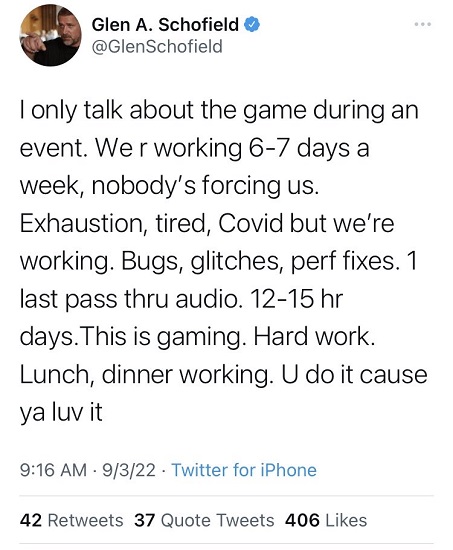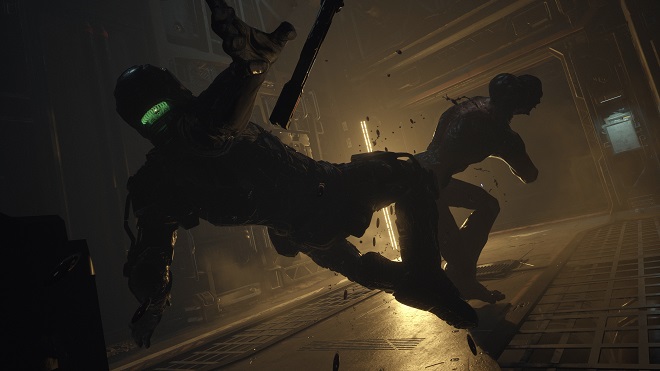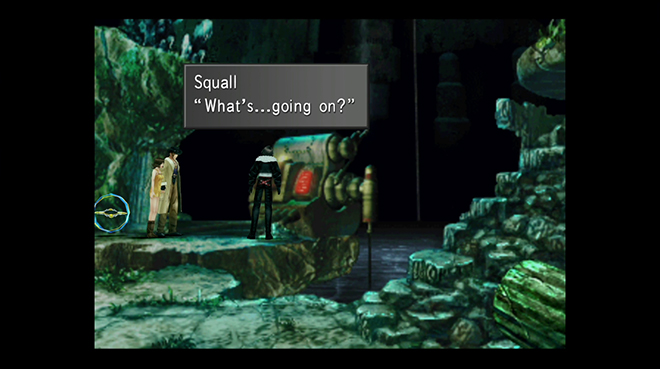Examples of Damage Control in Gaming: Captain Crunch

It’s Labor Day in the United States, a time to acknowledge the struggles and strides the working class has made over many decades, and the work that still needs to be done. The video game industry is rife with labor issues, the biggest and most discussed being crunch time. This occurs when developers on a certain video game team are either forced or coerced into working long hours for six or seven days a week, particularly when a game needs to be finished by a deadline set by the publisher. It’s a common practice in both the video game and tech industries, and both could use stronger work protections and regulations.
The practice of crunching has been viewed with a higher level of scrutiny in recent years, as features from sites like Kotaku, Bloomberg, and gamesindustry.biz have highlighted how ingrained the practice is in video game development. It got to the point where companies started highlighting how they didn’t engage in the practice, though most of them were noticeably indie developers. This recent time and this particular weekend would be a horrendous opportunity for someone to boast about utilizing the practice. That someone, it turns out, happened to be Glen Schofield of Striking Distance Studios.

Schofield posted a tweet on Saturday morning discussing the rigorous process the development team is undergoing to finish The Callisto Protocol, a horror game developed by veterans of the Dead Space series from the defunct Visceral Games, in time for the December 2nd release date. In the tweet, Schofield boasted about the team working “6-7 days a week” for “12-15 hr days,” including through lunch and dinner times. “U Do it cause ya luv it,” he said; his terminology, not mine. Schofield didn’t outright say the team was crunching, but a team working nearly every day of the week for around 70 to 100 hours is the definition of it.
Imagine making a tweet boasting about this after the practice has been scrutinized for several years, through many articles prominently shared. Imagine doing this on Labor Day weekend, the precise time when practices like these would be highlighted. Schofield’s mention that “nobody’s forcing us” to work these long hours egregiously stuck out in the tweet. Beyond how no one could force the literal founder and CEO of the damned company to crunch, developers aren’t exactly forced to do so in the first place. Instead, team and company leaders create a toxically competitive environment wherein the most diligent workers, defined as those willing to dedicate a significant portion of their free time to their jobs, are rewarded. It’s evident right through the tweet boasting about it on a social media platform how Striking Distance Studio is one such company.
Schofield wisely deleted the tweet after it was harshly criticized by those among the gaming audience and press who support better labor practices in the industry. In a follow-up apology tweet, he acknowledged how boasting about “the effort and hours the team was putting in” was “wrong,” and claimed that the company values “passion and creativity, not long hours.” It’s tough to believe this when Schofield classifies the team crunching so lightly by calling it mere “effort and hours,” and, well, how he felt the original tweet itself was a good idea before posting it.
It’s good, at least, that Schofield had enough self-awareness to delete the original tweet and issue an apology. But all that’s required is a quick glance under the replies to see why these kinds of attitudes fester in the gaming industry. There are replies saying Schofield shouldn’t have bowed to the mob to apologize, the “mob” here being a crowd of people who simply care about labor getting a fair shake and workers being able to work normal jobs without pressure of excessive overtime. There’s always a crowd willing to caress the boots of the elite class, especially if they (wrongly, as always) feel their sacred hobby is being threatened.

This entire affair has slightly derailed the pre-release campaign for The Callisto Protocol. There’s tragic irony in a development team being subjected to this kind of pressure by having their passion for creating games exploited after most of them left the clutches of EA. The game looks good from the previews they’ve shown, particularly the extended ones first presented at Geoff Keighley-hosted events. But now I’m more interested in hearing the story about what the developers have gone through behind the scenes. There are bound to be writers working on getting the story, though the most revealing details will likely wait until after the game has shipped.
In the time since seeing this tweet, I’ve seen the Twitter meme shared saying that people would rather pay for shorter games with worse graphics from developers working normal hours. That’s coming from a good place, but the anodyne to this issue of overwork won’t be so simple. It will take unionization, adjustments to labor laws, and careful government regulation to fix, all of which will be easier said than done to enact. That a developer felt it was wise to promote overwork culture shows the level of progress the gaming industry has yet to make. Whether it will ever make that progress is another question.





